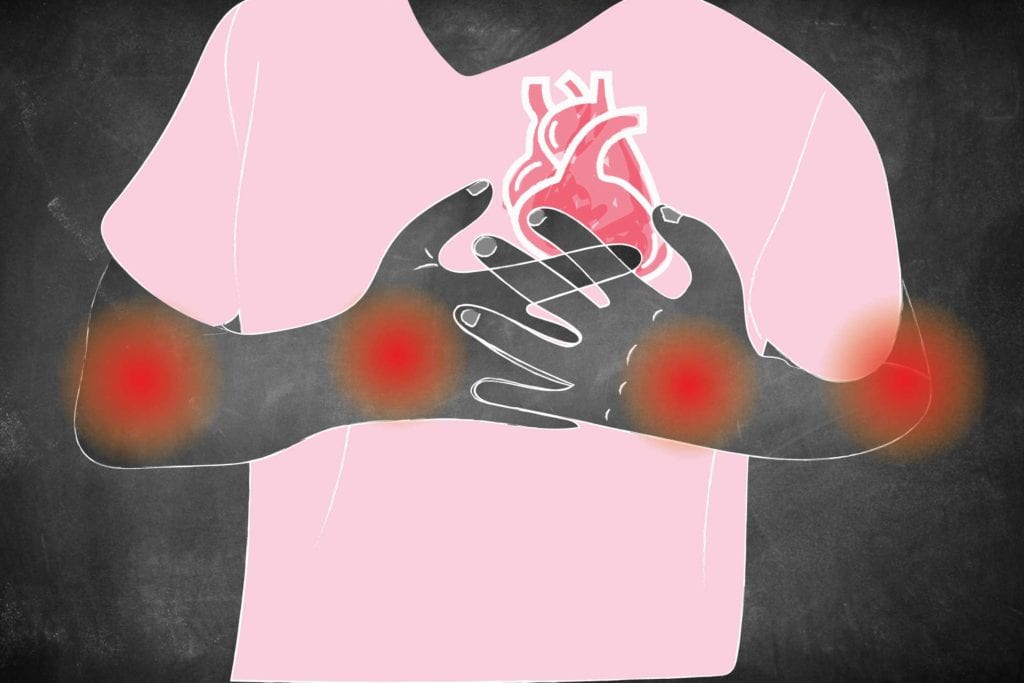

Psoriasis is often described as a skin condition, but there’s a lot going on beneath the surface that may have serious implications for your entire body.
A chronic autoimmune disease, psoriasis stems from an immune system problem that causes excess inflammation and prompts skin cells to grow too quickly. As a result, people who have psoriasis end up with itchy, scaly patches — and face an increased risk of joint disease (psoriatic arthritis), type 2 diabetes, and kidney disease. Heart issues are also a major concern: People with psoriasis are twice as likely as those without it to develop cardiovascular disease.
But research shows that treating severe psoriasis aggressively might provide your heart with some protection.
According to a new study, published in the journal Cardiovascular Research, people who took a biologic drug for severe psoriasis for a year had an 8 percent reduction of plaque in their coronary arteries. Coronary plaque is a common cause of heart attacks — plaque can rupture and block blood flow to the heart.
The reduced heart attack risk conferred by using a biologic is similar to the protection you would get from a low-dose statin (cholesterol lowering drug), according to the European Society of Cardiology.
The study, an observational trial of 238 patients, determined that only patients who used a biologic medication to treat their psoriasis reaped this benefit. Those who opted to stick with topical treatments or UV light therapy did not have any decrease in coronary plaque.
Biologic drugs for psoriasis, which include anti-TNF drugs (such as adalimumab and etanercept) and interleukin inhibitors (such as ustekinumab, secukinumab, and ixekizumab), work, in part, by countering inflammation. Left unchecked, inflammation is a major risk factor for cardiovascular disease.
Although more research in this area is warranted, “these findings highlight the importance of systemic inflammation in coronary artery disease,” the authors concluded.
If you have psoriasis, make sure that your doctors are closely monitoring your heart health. If you have other heart disease risk factors — perhaps your cholesterol, blood pressure, or blood sugar is too high — you will likely need to take additional medication to protect your heart (even if you’re on a biologic).





